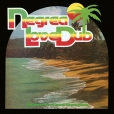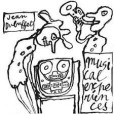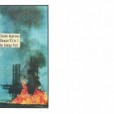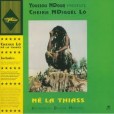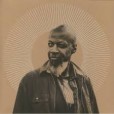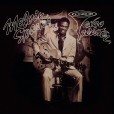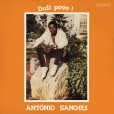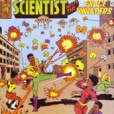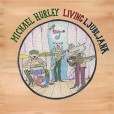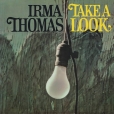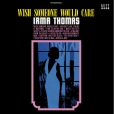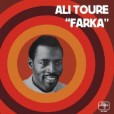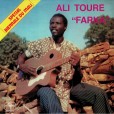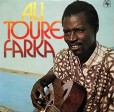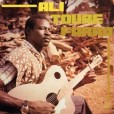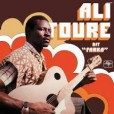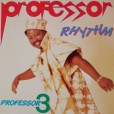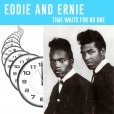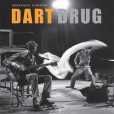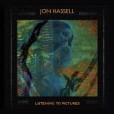Your basket is empty

Originally released by Kuckuck in 1973, Princess Of Dawn ranges library-style from ceremonial, meditative mantra drones (Triad, Deep Sea, Gothic Velvet, Evening), through sun-worship (Tom Bombaddils Dance), to playful, pulsating forays in analog synth (Desert Rock, Synth Effect, Flea Dance, Laser), by way of the traditional music of the Middle East, India and Europe (Arabia, Reed, Phoenix).
Twenty-six fragments of electronica by the Krautrock mystic, like stepping stones between the phase of music-making which culminated in Aum the previous year, and his imminent departure for Bhagwan Shree Rajneesh’s ashram in Poona, home to key-works like Celebration, Haleakala, Ecstasy and Silence Is The Answer.
This debut solo recording of the Hot Chip is a scrapbook of fifteen songs and instrumentals, made in planes, hotel rooms and at home, with bags of charm and inventiveness.
‘Producer Bob Porter brought the Texan guitarist to Prestige in 1970, where he recorded three albums as a leader and over a dozen as a session player, showing himself to be a wizard at playing funky licks and energised solos.
When Porter left Prestige to set up Eastbound Records in Detroit — as a branch of Westbound Records — Sparks followed on, and Texas Twister was his label debut, in 1973. The incredible rhythm section of Idris Muhammad, Sonny Phillips, Caesar Frazier and Wilbur Bascombe make this album a sure-fire funk bomb. On the front-line, a hard hitting horn section that includes Cecil Bridgewater and John Faddis is a perfect foil for Sparks.
‘With the monster acid jazz club cut Whip Whop and the frenetic Texas Twister, as well as a beautiful rendition of the Four Tops Ain’t No Woman (Like The One I Got).’
Ruthlessly brilliant dubs of classic Linval Thompson productions like Wayne Wade’s Poor And Humble and Johnny Osbourne’s Kiss Somebody. Courtesy of the Roots Radics at Channel One, by way of Tubby’s. De Materialize puts it perfectly.
Pure Malian blues for the heart and soul.
‘The first LP compilation of songs by the great Eddie and Ernie! The duo produced tons of great singles throughout the 60s and early 70s. This LP features a couple of dance numbers, but mostly slow dramatic soul ballads reminiscent of the best moments of more well-known acts like Sam & Dave and Otis Redding. Some pretty eerie soaring vocals and existential lyrics of the highest order.’
Percussionist Jamie Muir was a member of King Crimson during the recording of Larks’ Tongues In Aspic, in 1973. Staying less than a year with Robert Fripp, the Scot had already cut his teeth with another master guitarist, Derek Bailey, as part of the Music Improvisation Company, along with Evan Parker, Hugh Davies and Christine Jeffrey, whose eponymous 1970 album was one of the first releases on ECM. Muir and Bailey recorded Dart Drug eleven years later, in 1981.
There’s no shortage of great percussionists in the brief history of free improvised music but on the strength of Dart Drug alone Jamie Muir deserves a place at High Table. Unlike for example Han Bennink and John Stevens, though, you can’t hear echoes of any particular jazz drummer in Muir’s playing, even if he has expressed appreciation for Milford Graves (who himself sounded like nobody else who’d come before him).
What on earth did Muir’s kit consist of? Some instruments are clearly identifiable (bells, gongs, chimes, woodblocks); others could be… well, anything. Old suitcases thwacked with rolled up newspapers? Tin cans and hubcaps inside a washing machine? Who cares? It sounds terrific – but if you’re the kind of person who faints at the sound of nails scraping a blackboard, you might want to nip out and put the kettle on towards the end of the title track.
Dart Drug is consistently thrilling, and often very amusing – but it’s certainly not easy listening. In music we talk about playing with other musicians, whereas in sport you play against another opponent (or with your team against another team). Why not play against in music, too? That’s precisely what happens very often in improvised music, and Bailey was particularly good at it. How can a humble acoustic guitar hope to compete with a Muir in full flight? Sometimes Bailey’s content to sit on those open strings, teasing out yet another exquisite Webernian constellation of ringing harmonics and wait for the dust to settle in Muir’s junkyard, but elsewhere he sets off into uncharted territory himself.
“The way to discover the undiscovered in performing terms is to immediately reject all situations as you identify them (the cloud of unknowing) – which is to give music a future.” Bailey evidently concurred with this spoken statement by Muir, including it in his book Improvisation.
Derek Bailey is no longer with us, of course, and Muir gave up performing music back in 1989. All the more reason for seeking out this magnificent, wild album.
Very hotly recommended.
